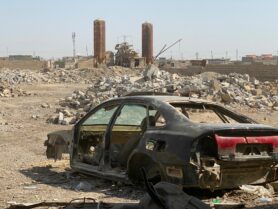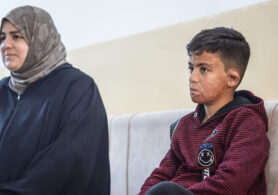In a groundbreaking judgement, the Dutch Court has ruled that the Netherlands must cease the export of F-35 fighter jet parts from its “F-35 Regional Warehouse” in Woensdrecht to Israel within seven days. The court stated that there is a “clear risk” that Israel could commit “grave violations of humanitarian law” through its ongoing airstrikes in Gaza, which have thus far resulted in over 28.000 civilian casualties.
The Netherlands has played a pivotal role in the development and upkeep of the F-35 system since 2002. Following increased demand for parts by Israel due to its heightened F-35 activity over Gaza after Hamas’ October 7 attacks, The Netherlands continued exporting components from its F-35 Regional Warehouse to Israel. The Dutch state defended this decision in court, stating that denying the parts requests would have jeopardised relationships with both Israel and the United States.
The court’s ruling against this plea is important because it attributes responsibility and accountability in the complex kill chain causing civilian harm in 21st-century warfare. In contemporary warfare, many states play different roles and offer different forms of military support, including finances, weapon systems, intelligence, and AI-driven software, in the name of being a ‘good ally’.
By design, it is often hard to trace ‘who contributes what’ in these military alliances and the states involved often claim they are not responsible for the violence that is executed and the civilian harm that is caused by these weapons systems, because they did not pull the trigger.
This groundbreaking judgement pushes back against these blurred lines of responsibility and brings accountability back in. If weapon systems are used to commit grave violations of humanitarian law, this judgement underlines that the militaries involved in maintaining these systems can and should be called to account and to a halt.
This is a victory for the rule of law and the protection of civilians in contemporary warfare. This judgement is only made possible by the people and organisations that brought this case to the court. IRW would therefore like to pay special thanks to its long-running partners Liesbeth Zegveld and Pax for Peace.



